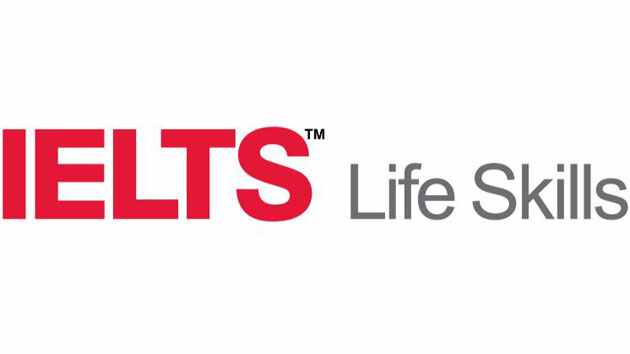A career in Human Resources (HR) opens a world of possibilities. With businesses increasingly recognizing the value of their human capital, the demand for skilled HR professionals has never been higher. An HR degree not only equips you with a deep understanding of employee relations, compensation, benefits, and organizational behavior but also opens the door to various career paths within the field.
Whether you're drawn to the dynamics of talent acquisition or the strategic aspects of compensation planning, an HR degree offers a pathway to a rewarding career. Here, we explore some exciting career paths that an HR degree can lead to, showcasing the diversity and potential of the field.
1. HR Generalist
The role of an HR Generalist is as diverse as it is challenging. As the backbone of any HR department, HR Generalists handle various responsibilities, from recruiting and onboarding new hires to managing employee relations and administering benefits. This role is ideal for those who thrive in versatile environments and are eager to get a taste of everything HR has to offer.
As a generalist, you become the go-to person for employees and management alike. This role requires a balanced mix of people skills, organizational ability, and a deep understanding of HR policies and procedures. It offers immense satisfaction and variety, making every day a new opportunity to make a difference in the workplace.
2. Talent Acquisition Specialist
In the heart of every successful organization lies a team of talented individuals brought together by the keen eye of a Talent Acquisition Specialist. This role goes beyond mere recruitment; it's about strategic hiring practices that align with the company's long-term goals.
With a Masters in Human Resources Management, professionals in this field are well-equipped to navigate the complexities of talent scouting, employer branding, and the candidate experience.
3. Compensation and Benefits Manager
Compensation and Benefits Managers play a critical role in crafting the packages that attract and retain top talent. This career path demands a keen understanding of market trends, negotiation skills, and a thorough knowledge of legal requirements to develop competitive yet sustainable compensation and benefits programs. These HR professionals ensure that an organization's offerings are enticing to potential hires and satisfactory to current employees, balancing budget constraints with employee needs.
The role requires constant adaptation and strategic thinking as the landscape of employee expectations and industry standards continues to evolve. For those fascinated by numbers and strategy, this path offers a fulfilling blend of analysis, creativity, and direct impact on organizational culture.
4. Training and Development Manager
The work landscape constantly changes, and Training and Development Managers ensure that employees are not left behind. By designing, implementing, and evaluating training programs, these managers play a pivotal role in personal and professional development within the organization. This career path is perfect for those with a passion for learning and teaching and a strategic mind capable of linking development initiatives with business outcomes.
Effective training programs equip employees with the necessary skills to excel in their roles, adapt to new technologies, and embrace organizational changes. Training and Development Managers thus not only contribute to individual growth but also drive the overall success and competitiveness of their organization.
5. Employee Relations Manager
The role of an Employee Relations Manager is important in fostering a positive work environment and maintaining harmonious relationships within an organization. This position demands a high level of empathy, excellent communication skills, and a thorough understanding of labor laws and organizational policies.
Employee Relations Managers are tasked with resolving conflicts, managing employee grievances, and ensuring the workplace is free from discrimination and harassment. They serve as mediators between staff and management, advocating for fair treatment and promoting a culture of respect and inclusion.
6. HR Analytics Specialist
The field of HR is becoming increasingly data-driven, and HR Analytics Specialists are at the forefront of this transformation. These specialists provide insights that inform strategic decision-making by analyzing data related to recruitment, performance, retention, and compensation. A knack for numbers, strong analytical skills, and proficiency in data analysis tools are essential for success in this role.
Care home HR solutions and guidance help organizations optimize their human capital investments and predict future trends, making them invaluable assets. This career path is ideal for those who enjoy digging into data to uncover patterns and insights that drive better HR practices and policies.
7. Diversity and Inclusion Officer
In today's globalized world, diversity and inclusion (D&I) are more than just buzzwords—they are integral to an organization's success. Diversity and Inclusion Officers lead the charge in developing and implementing policies and programs that promote a diverse workforce and an inclusive culture. This role requires a deep understanding of cultural differences, sensitivity to issues of equity, and the ability to design initiatives that address disparities and foster belonging.
Diversity and Inclusion Officers work closely with all levels of an organization to ensure that diversity is recognized and celebrated.
8. Organizational Development Consultant
Organizational Development Consultants are the architects of workplace efficiency and employee satisfaction. They work with organizations to diagnose issues, design strategic interventions, and facilitate changes that improve organizational health and performance. This role combines elements of psychology, business management, and human resources, requiring a blend of analytical thinking, creativity, and interpersonal skills.
For those who enjoy problem-solving and aspire to drive organizational change, a career in organizational development consulting can be both challenging and rewarding.
Conclusion
Pursuing a career in human resources opens up a world of opportunities to make a meaningful impact in the workplace. From ensuring fair and competitive compensation to fostering a culture of inclusion and continuous learning, HR professionals play a critical role in shaping organizational success.
The diversity of career paths available within the field allows individuals to leverage their unique skills and interests, whether they are drawn to the analytical rigor of HR analytics, the strategic aspects of talent acquisition, the nurturing aspects of training and development, or the transformative potential of organizational development.
As organizations continue to evolve and the importance of effective human resource management becomes ever more apparent, the demand for skilled HR professionals will only grow. Those equipped with a comprehensive understanding of HR practices and the ability to apply them strategically will find themselves well-positioned to lead and innovate in their chosen careers.

.jpg)




